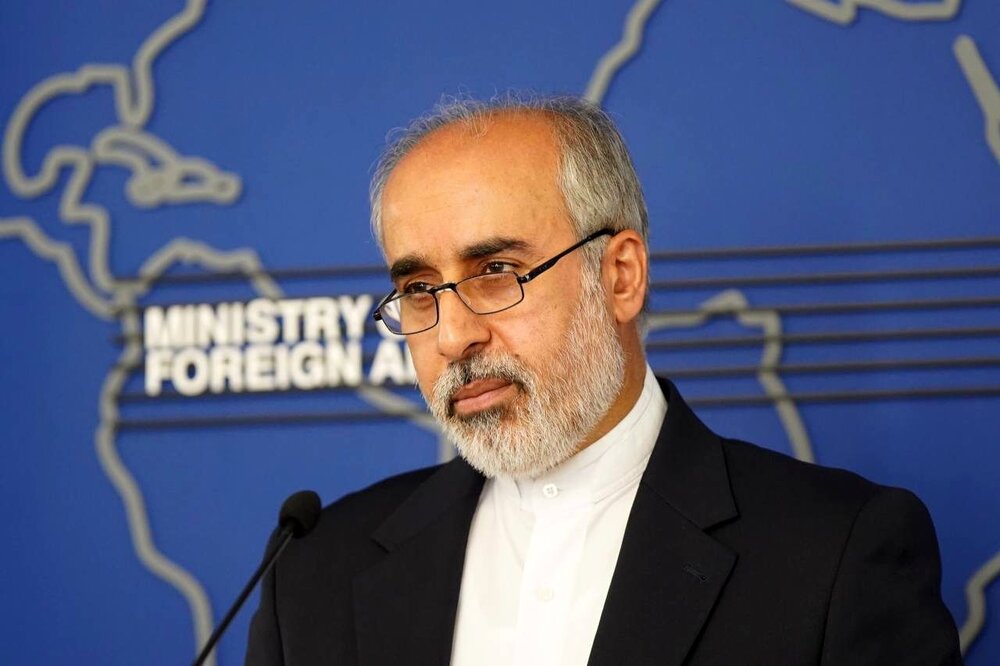Iran to U.S.: Who is really isolated?

TEHRAN— In a thread posted on his Twitter account on Saturday, Iran’s Foreign Ministry spokesman stated that the U.S. is truly isolated.
“The biggest violators of #humanrights and the supporter of the most notorious terrorist groups, organized an #ArriaFormula meeting in New York against the Islamic Republic of Iran to condemn and isolate Iran in their opinion. For this purpose, they did not allow the representatives of 19 countries against the sanctions to speak through their media dictatorship!” Nasser Kanaani wrote.
The diplomat continued, “Instead, the United States gave the podium to two notorious women who support sanctions against Iranian women and children! The American government failed in New York. Less than a week later, the representatives of 19 countries attended the meeting of “Group of Friends in Defense of the Charter of the United Nations" in #Tehran and gave America's answer. Who is really isolated?”
An Arria-Formula meeting of the United Nations Security Council was held on Wednesday at the initiative of Washington and Tirana, but it did not go as they hoped for.
The U.S. and Albania attended the meeting at the level of ambassadors, while others seemed less interested, attending at deputies or expert level.
India didn’t speak at the session, contrary to the previous lobbies the U.S. diplomats had, proving Iran's influence once again.
The envoys of Brazil, Mexico, the UAE, Ghana, Kenya, and Gabon did not speak against Iran, taking a neutral position.
Exerting its dictatorship, the U.S. did not allow any of the countries that are not Washington's allies to speak at the meeting, including the Venezuelan envoy to the UN.
On the contrary, Iran hosted the first international summit of Group of Friends in Defense of the Charter of the United Nations in Tehran on Saturday.
The group includes Algeria, Angola, Belarus, Bolivia, Cambodia, China, Cuba, the Democratic People’s Republic of Korea, Equatorial Guinea, Eritrea, Iran, the Lao People’s Democratic Republic, Nicaragua, the State of Palestine, the Russian Federation, Saint Vincent and the Grenadines, Syria, Venezuela, and Zimbabwe.
At the end of the meeting, they issued a joint political declaration in which they called for an end to sanctions against Iran.
“We also reaffirm our strong rejection and condemnation of the imposition of illegal sanctions, unilateral coercive measures against the People and Government of Nicaragua, and aggressions that have a negative impact on the development and prosperity of the country. In this sense, we demand the immediate end of such sanctions,” they said in the declaration.
The group also voiced support for the Iranian people and government. “We express our unwavering support for and solidarity with the People and Government of the Islamic Republic of Iran, subjected to unilateral coercive measures, including unilateral sanctions imposed by certain countries, which violate the Charter of the United Nations and the rules and principles of international law, while seriously threatening the full enjoyment of their human rights and the realization of their right to development,” they said.
It added, “We further call for the ‘lifting of all such unilateral measures against the Islamic Republic of Iran, Iranian nationals and companies,’ as recommended by the UN Special Rapporteur on the Negative Impact of Unilateral Coercive Measures on the Enjoyment of Human Rights in her report to the Human Rights Council on 17 August 2022 (A/HRC/51/33/Add.1), pursuant to her official country visit to the Islamic Republic of Iran from 7 through 18 May 2022.”
The representatives of these countries met at the vice-ministerial level in Tehran to discuss ways and means to advance common endeavors aimed at preserving, promoting and defending the prevalence and validity of the Charter of the United Nations, both in its letter and spirit, and to further improve coordination on issues of common concern and interest and on potential ways to move forward.
The group also expressed concern over the replacement of the tenets of the UN Charter with what came to be known as rules-based order. “We reiterate our serious concern at continued attempts aimed at replacing the tenets enshrined in the Charter of the United Nations – which have been agreed upon by the entire international community for conducting their international relations – with a so-called ‘rules-based order’, that remains unclear, that has not been discussed or accepted by the wide UN membership, and that has the potential, among others, to undermine the rule of law at the international level,” the group said.
On the sidelines of the meeting, Iran’s Foreign Minister Hossein Amir Abdollahian seized the opportunity to meet several deputy foreign ministers, including Russia’s Sergey Vershinin.
